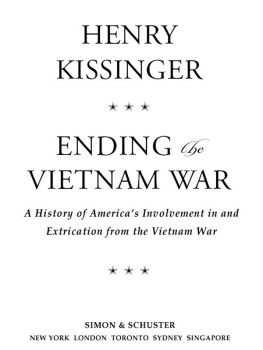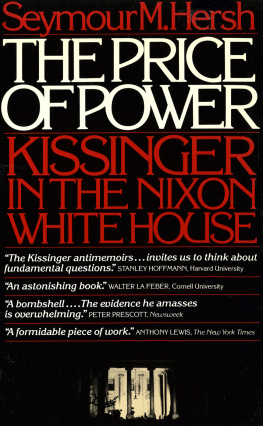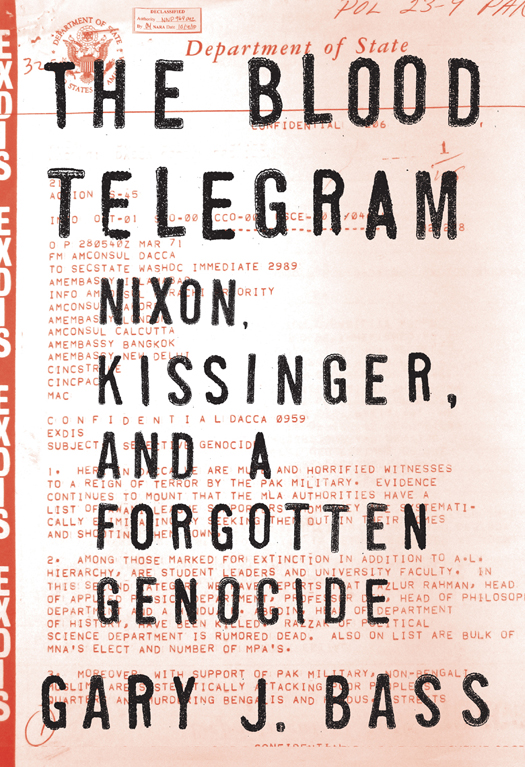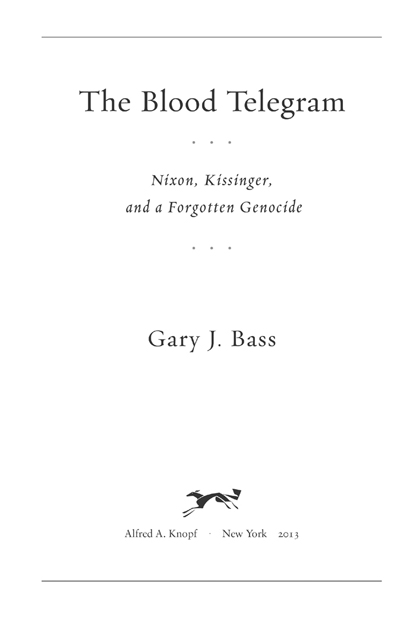Gary J. Bass - The Blood Telegram: Nixon, Kissinger, and a Forgotten Genocide
Here you can read online Gary J. Bass - The Blood Telegram: Nixon, Kissinger, and a Forgotten Genocide full text of the book (entire story) in english for free. Download pdf and epub, get meaning, cover and reviews about this ebook. year: 2013, publisher: Knopf, genre: Politics. Description of the work, (preface) as well as reviews are available. Best literature library LitArk.com created for fans of good reading and offers a wide selection of genres:
Romance novel
Science fiction
Adventure
Detective
Science
History
Home and family
Prose
Art
Politics
Computer
Non-fiction
Religion
Business
Children
Humor
Choose a favorite category and find really read worthwhile books. Enjoy immersion in the world of imagination, feel the emotions of the characters or learn something new for yourself, make an fascinating discovery.

- Book:The Blood Telegram: Nixon, Kissinger, and a Forgotten Genocide
- Author:
- Publisher:Knopf
- Genre:
- Year:2013
- Rating:5 / 5
- Favourites:Add to favourites
- Your mark:
The Blood Telegram: Nixon, Kissinger, and a Forgotten Genocide: summary, description and annotation
We offer to read an annotation, description, summary or preface (depends on what the author of the book "The Blood Telegram: Nixon, Kissinger, and a Forgotten Genocide" wrote himself). If you haven't found the necessary information about the book — write in the comments, we will try to find it.
A riveting historythe first full accountof the involvement of Richard Nixon and Henry Kissinger in the 1971 atrocities in Bangladesh that led to war between India and Pakistan, shaped the fate of Asia, and left in their wake a host of major strategic consequences for the world today.
Giving an astonishing inside view of how the White House really works in a crisis, The Blood Telegram is an unprecedented chronicle of a pivotal but little-known chapter of the Cold War. Gary J. Bass shows how Nixon and Kissinger supported Pakistans military dictatorship as it brutally quashed the results of a historic free election. The Pakistani army launched a crackdown on what was then East Pakistan (today an independent Bangladesh), killing hundreds of thousands of people and sending ten million refugees fleeing to Indiaone of the worst humanitarian crises of the twentieth century.
Nixon and Kissinger, unswayed by detailed warnings of genocide from American diplomats witnessing the bloodshed, stood behind Pakistans military rulers. Driven not just by Cold War realpolitik but by a bitter personal dislike of India and its leader Indira Gandhi, Nixon and Kissinger actively helped the Pakistani government even as it careened toward a devastating war against India. They silenced American officials who dared to speak up, secretly encouraged China to mass troops on the Indian border, and illegally supplied weapons to the Pakistani militaryan overlooked scandal that presages Watergate.
Drawing on previously unheard White House tapes, recently declassified documents, and extensive interviews with White House staffers and Indian military leaders, The Blood Telegram tells this thrilling, shadowy story in full. Bringing us into the drama of a crisis exploding into war, Bass follows reporters, consuls, and guerrilla warriors on the groundfrom the desperate refugee camps to the most secretive conversations in the Oval Office.
Bass makes clear how the United States embrace of the military dictatorship in Islamabad would mold Asias destiny for decades, and confronts for the first time Nixon and Kissingers hidden role in a tragedy that was far bloodier than Bosnia. This is a revelatory, compulsively readable work of politics, personalities, military confrontation, and Cold War brinksmanship.
Gary J. Bass: author's other books
Who wrote The Blood Telegram: Nixon, Kissinger, and a Forgotten Genocide? Find out the surname, the name of the author of the book and a list of all author's works by series.

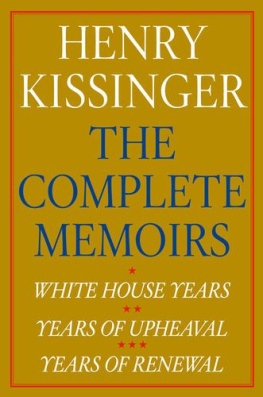
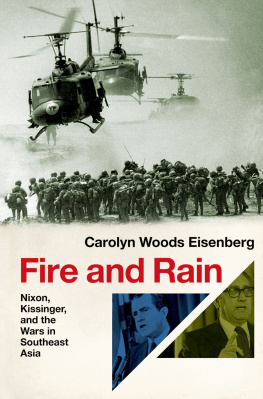
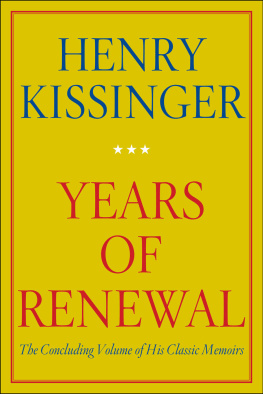
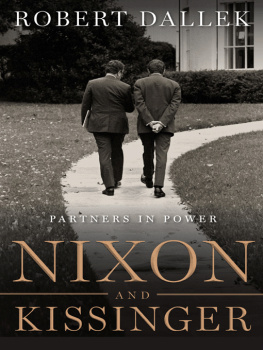
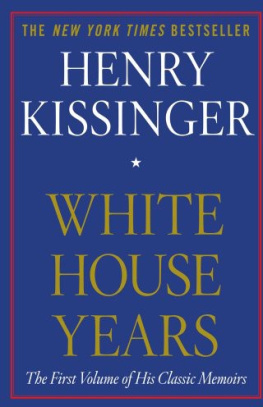
![Kissinger - Years of Upheaval: [VOL2 Classic Memoirs]](/uploads/posts/book/181244/thumbs/kissinger-years-of-upheaval-vol2-classic.jpg)
